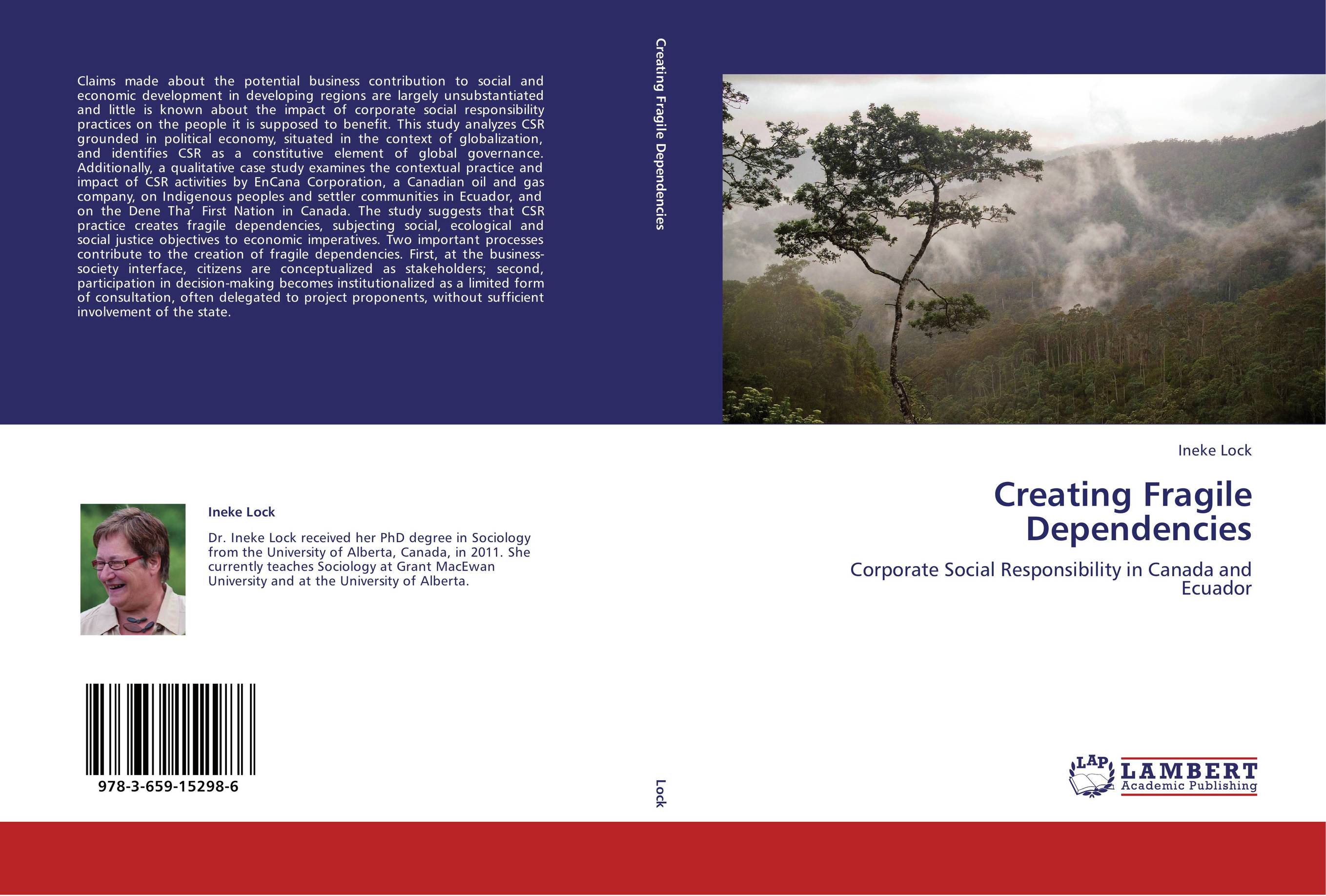| Поиск по каталогу |
|
(строгое соответствие)
|
- Профессиональная
- Научно-популярная
- Художественная
- Публицистика
- Детская
- Искусство
- Хобби, семья, дом
- Спорт
- Путеводители
- Блокноты, тетради, открытки
Creating Fragile Dependencies. Corporate Social Responsibility in Canada and Ecuador

В наличии
| Местонахождение: Алматы | Состояние экземпляра: новый |

Бумажная
версия
версия
Автор: Ineke Lock
ISBN: 9783659152986
Год издания: 2012
Формат книги: 60×90/16 (145×215 мм)
Количество страниц: 508
Издательство: LAP LAMBERT Academic Publishing
Цена: 61556 тг
Положить в корзину
| Способы доставки в город Алматы * комплектация (срок до отгрузки) не более 2 рабочих дней |
| Самовывоз из города Алматы (пункты самовывоза партнёра CDEK) |
| Курьерская доставка CDEK из города Москва |
| Доставка Почтой России из города Москва |
Аннотация: Claims made about the potential business contribution to social and economic development in developing regions are largely unsubstantiated and little is known about the impact of corporate social responsibility practices on the people it is supposed to benefit. This study analyzes CSR grounded in political economy, situated in the context of globalization, and identifies CSR as a constitutive element of global governance. Additionally, a qualitative case study examines the contextual practice and impact of CSR activities by EnCana Corporation, a Canadian oil and gas company, on Indigenous peoples and settler communities in Ecuador, and on the Dene Tha’ First Nation in Canada. The study suggests that CSR practice creates fragile dependencies, subjecting social, ecological and social justice objectives to economic imperatives. Two important processes contribute to the creation of fragile dependencies. First, at the business-society interface, citizens are conceptualized as stakeholders; second, participation in decision-making becomes institutionalized as a limited form of consultation, often delegated to project proponents, without sufficient involvement of the state.
Ключевые слова: indigenous peoples, CSR, Corporate Social Responsibility, FPIC, fragile dependencies, contextuality, Dene Tha’ First Nation, Siona-Secoya, EnCana Corporation



